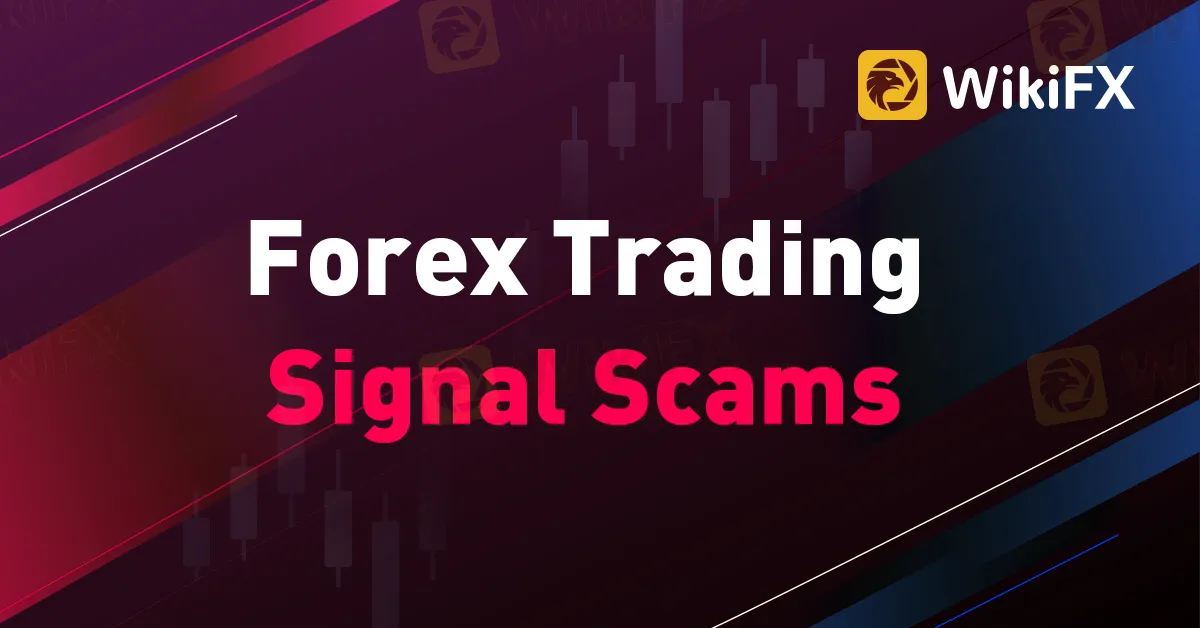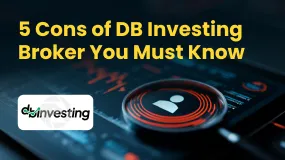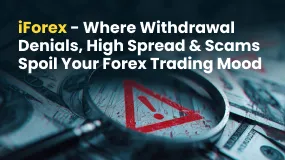简体中文
繁體中文
English
Pусский
日本語
ภาษาไทย
Tiếng Việt
Bahasa Indonesia
Español
हिन्दी
Filippiiniläinen
Français
Deutsch
Português
Türkçe
한국어
العربية
Forex Trading Signal Scams
Abstract:Forex trading signal scams are a prevalent issue in South Africa, as in many other countries. These scams typically involve companies or individuals claiming to have a system or strategy that can consistently generate profits in the foreign exchange market. The scammers will often charge a fee for access to their signals or trading system or require traders to open a trading account with a specific broker in order to receive the signals.

Forex trading signal scams are a prevalent issue in South Africa, as in many other countries. These scams typically involve companies or individuals claiming to have a system or strategy that can consistently generate profits in the foreign exchange market. The scammers will often charge a fee for access to their signals or trading system, or require traders to open a trading account with a specific broker in order to receive the signals.
The WikiFX app is the finest resource for finding a broker in South Africa. A forex broker search program that handles all the work for you is called WikiFX. On the app, traders can access all regulatory data, rates, and evaluations. The Play Store and AppStore both sell the WikiFX app.
One common tactic used by forex signal scams is to provide traders with a small number of winning trades in order to entice them to invest more money. Once the trader has invested a significant amount, the scammers will often stop providing profitable signals and instead provide a series of losing trades. This can result in significant financial losses for the trader.
Another tactic used by forex signal scams is to use fake or misleading testimonials to convince traders that their system is profitable. These testimonials are often fabricated or provided by paid actors, and do not reflect the actual experiences of traders who have used the system.
To avoid falling victim to a forex trading signal scam, it is important to thoroughly research any company or individual offering a trading system or signals before investing any money. It is also important to be wary of any company or individual that makes unrealistic or overly-optimistic claims about the potential profits that can be generated by their system.
Additionally, it is important to remember that no trading system or signal can guarantee profits, and that trading in the foreign exchange market carries a significant level of risk. As such, it is important to only invest money that you can afford to lose and to have a well-defined risk management strategy in place.
In summary, forex trading signal scams are a prevalent issue in South Africa and traders should be cautious and do their research before investing in any system or signal. No system can guarantee profits and trading in forex market always carries a level of risk, so traders should invest only what they can afford to lose and have a well-defined risk management strategy in place.

Disclaimer:
The views in this article only represent the author's personal views, and do not constitute investment advice on this platform. This platform does not guarantee the accuracy, completeness and timeliness of the information in the article, and will not be liable for any loss caused by the use of or reliance on the information in the article.
Read more

5 Cons of DB Investing Broker You Must Know
It's always advisable to read online review articles about forex brokers you are thinking to Invest your money with. The forex market has become increasingly unsafe due to the rise of fraudulent brokers. Review articles help you spot scam brokers and protect your money. Read this important article about DB Investing to stay fraud alert.

iForex - Where Withdrawal Denials, High Spread & Scams Spoil Your Forex Trading Mood
Are high spreads charged by iForex disallowing you to make profits? Do you feel that you will never be able to withdraw from iForex? It's nothing new! Read this exposure story where we have highlighted complaints from several investors.

Forex Hedging Strategies - Calming You Amid Market Chaos
Finding it hard to deal with the forex market volatility? Do those ups and downs in currency pair prices make you more nervous or worried? You need the right forex hedging strategies. As a concept, forex hedging is about strategically opening additional positions to stay immune against adverse forex price movements. It’s about offsetting or balancing your current positions by buying or selling financial instruments. As a trader, your risk exposure is reduced, hence limiting your potential losses.

Scam Alert: Cloned Broker Scams on the Rise
Reputed authorities like the FCA have issued warnings against brokers who act genuine but are actually fake brokers. They copy details such as logos, names, branding, and sometimes even employee appearances to trick investors and steal money from them.
WikiFX Broker
Latest News
Forex Hedging Strategies - Calming You Amid Market Chaos
Key Events This Week: ISM, Trade Balance And More Earnings
What Is Forex Currency Trading? Explained Simply
ASIC Regulated Forex Brokers: Why Licensing Still Matters in 2025
A Beginner’s Guide to Trading Forex During News Releases
Ultima Markets enters the UK and gains the FCA license
LSEG Announces £1 Billion Share Buyback Program
SEC Lawsuit Targets Real Estate Fraud Scheme by Joseph Nantomah
Scam Alert: Cloned Broker Scams on the Rise
TradersWay Broker Review 2025: Unregulated Status and Global Warnings You Shouldn’t Ignore
Currency Calculator


